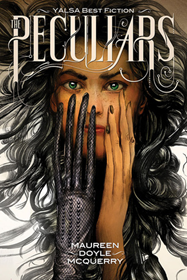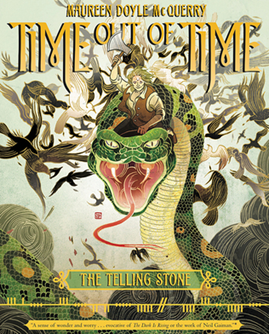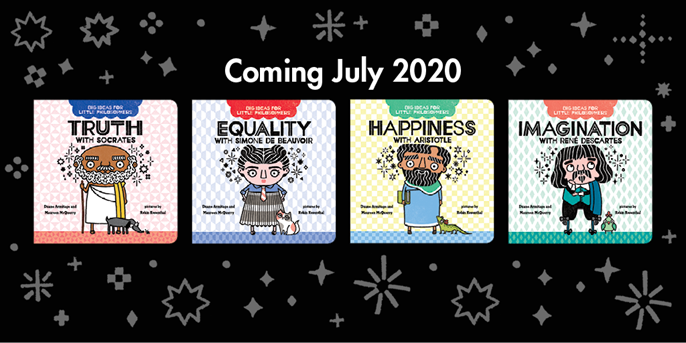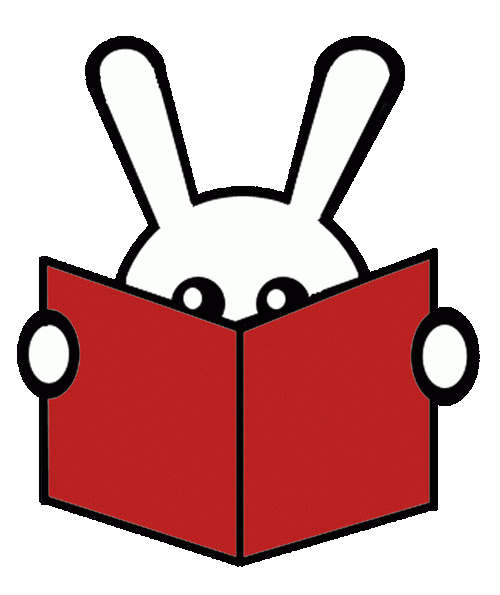Maureen Doyle McQuerry
Interview by Justin Nyberg
Maureen Doyle McQuerry is an award winning, poet, author and educator. Her writing has won multiple awards. Her YA novel The Peculiars won the ALA Best Book for Young Adult Readers in 2013, and her YA novel Time Out of Time: Beyond the Door won Booklist's Top Ten SF-Fantasy Youth in 2014. Her work as an educator resulted in the book Nuclear Legacy, a class she developed focusing on the inquiry method, and the Christa McAuliffe Fellowship for Washington State in 2000. Maureen now writes full-time but still finds ways to teach by offering school visits for librarians and teachers, Q&A's, and writing workshops.
Justin Nyberg: I've read that you have synesthesia and when you see letters and numbers they also have their own assigned colors. That being said, does your lucky number share your favorite color? Did one influence the other?
Maureen McQuerry : My lucky number is 6. Six in appears as a dark dusty pink to me and even though it's not my favorite color, it's not bad. There are various types of synesthesia. Mine is ordinal. That means that numbers, colors, the days of the week and months of the year--things in sequence, I guess--have a particular color associated with them. That color never changes. I don't see the color on the object. For example, I don't see "F” as brown text on a page of text nor do I see the number 8 as blue-grey if I see it written somewhere. Instead, the association happens in my mind.
Justin: Do you think that your ordinal synesthesia influences your ability to manage processes that are series heavy? Does having that color association present give your memory another point of reference that you're able to utilize?
Maureen McQuerry: Sometimes having synesthesia helps and sometimes it hinders. I can use a color cue to help me remember a phone number, but there are times when I see numbers on a page in color and they don't match the color I see in my head and it makes it more difficult to recall a number sequence.
Justin: How did you first discover your synesthesia? It seems like a difficult thing to explain for the first time and to notice, when it’s all you know. When reading about the ordinal version of synesthesia I came across something called ordinal linguistic personification, which is where you assign personalities to things in order, numbers and months and so on (something I thought everyone did). So after making that discovery about myself I'm even much more curious about how that discovery went for you.
Maureen McQuerry: I didn't know that I had synesthesia until I was a teen in the 70's. I thought everyone saw the world that way(!) and then I discovered it through an old mystery novel. It may have been The Woman in White by Wilkie Collins. In the recent TV adaption the protaganist has synesthesia, but I truly can't recall which novel it was, but it was a revelation to me! I started doing research and realized not everyone saw the world this way and that the condition has a name. It was so much fun to discover my daughter and son both have the same condition. Claire's is ordinal just like mine and we argue about colors a lot, while Brennan tastes shapes. Certain foods have shapes in his mouth that make them pleasant or unpleasant.
Justin: How do people usually react to your having synesthesia? Are there always a lot of questions? Do people tend to treat it as a perceived challenge or a strength? Do you see it as a challenge or a strength?
Maureen McQuerry: I think having synesthesia is delightful. It's a fun way to perceive the world. Most people don't realize I have it, because it doesn't come up in conversation.
Justin: Are there any books that capture what it’s like to have synesthesia well? For example, when I first read Motherless Brooklyn I was able to see Tourette's in a very different way and I loved being able to see how that syndrome looked internally and not just in the moments people observe. I'd love to read a book where synesthesia is captured like that.
Maureen McQuerry: Here's a list of books with synesthesia. I have only read Blue Cats from this list.
Justin: When researching you online your mini bio often mentions you being a McAuliffe Fellow but that was really all I saw regarding the fellowship and it left me curious. Could you tell me more about the process of becoming a McAuliffe Fellow and how you were able to utilize your award?
Maureen McQuerry: The McAuliffe Fellowship provided annual fellowships to outstanding public and private elementary and secondary school teachers. Only one could be granted per state each year. The program ended in 2002. In 2000, I worked with students in the U.S. and Ukraine to write Nuclear Legacy, a book that connected students from two communities, describing past and present nuclear culture in Chernobyl and Hanford. I received the McAuliffe Fellowship for that project and for a class I developed called Passion Projects. The class used the inquiry method to teach research skills and help students investigate subjects they were passionate about. I used the award for sabbatical time to write a book for teachers, Student Inquiry, on how to use the inquiry method in any discipline to engage students and teach research skills.
Justin: I'm glad I asked about the fellowship. That's a great story and personally is going to lead me to some more reading, which I love. With your expertise in research I'd love to hear your thoughts on the current research culture in our country today. How well do you feel the sources of information we're using now are serving us and how has the ease of access to information both right and wrong changed the way we understand things?
Maureen McQuerry: That's a really big question. The short answer is that we're relying less on primary sources and more on hearsay and secondary sources because of social media. We read in sound bites and draw conclusions from them. True research is messy and complicated and can't often be expressed in a headline. I also think that as a country we've become so polarized that's it's difficult to hear other points of view. Discourse has been replaced by lobbying people in support of our own opinions. It's a huge problem. We have access to so much information that we're overwhelmed, and it's easier to stay with familiar assumptions than to seek out new information. Also, our identity is so tied to our political and social points of view that it's threatening to entertain ideas that might challenge our assumptions. I think that has more to do with people's fear of being labeled and called out publicly when they challenge current accepted ideas. We need to stop that kind of behavior and engage in true discourse with each other.
Justin: When working with students from the U.S. and the Ukraine, what surprised you most in the similarities or differences in the nuclear culture? Both sites have a very unique history and, as a Hanford area local, I know we let that history settle into our day-to-day lives, and I wonder how that experience compares to people who grew up in similar circumstances.
Maureen McQuerry: My Hanford students were surprised how similar they were to the Ukrainian students. One of my students commented, "We have the same dreams, hopes and fears." They didn't expect that from teens on the other side of the world in a culture very different than their own and of course, that's exactly what I wanted them to discover.
Our visit was right after the dissolution of the Soviet Union and the biggest difference I found [there] was the lack of hope and vision for the future. It was difficult for them to imagine what their futures might be. They were overwhelmed by the changes in their culture and many, at that time, felt trapped by their circumstances, while the Hanford students felt much more optimistic and in control of their future. Both groups were very aware of the importance of the nuclear industry and science and technology in their communities. And both groups appreciated but also questioned the role of nuclear energy.
Justin: This question is admittedly self-serving but with your research background I'm sure you've read your fair share of interviews and have the insight I could use. What types of questions do you like to see asked that you feel aren't asked enough?
Maureen McQuerry: Your questions are excellent. I think one area interviewers could explore more are the themes that tie an author's works together. There's usually a common thread running their work and I'm always interested in what it is and why.
Justin: I'm a pretty regular note taker in my day-to-day life and I'm always curious how writers (who, when writing fiction are often world-builders) manage that much detail. When I think about writing books myself, I envision having to have one of those conspiracy theory walls with strings connecting all the clues, in what must be a continual state of flux as you build. How do you keep it all in order? And how much more difficult does that get when managing two timelines; do you have to use two walls?
Maureen McQuerry: I have heard that Scrivener is the way to go to keep research organized. However, I wrote Between Before and After and my other novels the old fashioned way with Word. I tried a number of methods to try and keep the research organized. For BBA, I had folders in Evernote, where I clipped research articles about both time periods. I also had folders with photos from both time periods. Because I think primary research is important, I tried to include as many firsthand accounts from the periods as well including newspapers, journal entries and accounts from the CDC and National Institute of Health on the 1918 flu. The tricky part was knowing when to move from one timeline to another in putting the story together. It was even trickier because the 1955 timeline covers the events of one summer, while the 1918 timeline spans several years. I made a chapter-by-chapter outline for each time period and made sure that story flowed in '55 and in the early 1900's. Then I printed out all the chapters and laid the pages in chapter stacks on the floor. I spent a lot of time on my knees. I could have done this 3x5 cards. If I was smart as to be using Scrivener, I could have done this with virtual cards on a virtual cork board. But there was something about seeing the two timelines together and being able to move chapters physically from place to place that was very helpful.
Justin: What do you have coming up for us to look forward too?
Maureen McQuerry: I'm so glad you asked about upcoming projects because I have some to announce: Big Ideas for Little Philosophers debuts July 2020. I've attached the delightful covers!

You can learn more about Maureen McQuerry at Maureenmcquerry.com
To find books by Maureen McQuerry at Adventures Underground click Here
Interview conducted by email November-December 2019
Copyright © 2020 Adventures Underground
More Interviews

